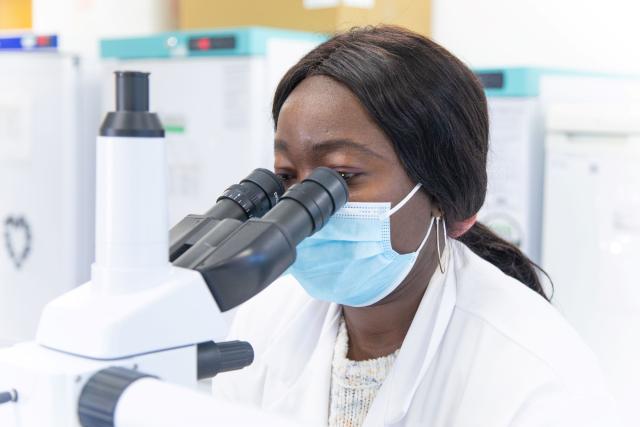
How Welsh researchers are combating the threat posed by resistance to antibiotics
17 May
A Health and Care Research Wales researcher has called growing resistance to antibiotics a “major issue” in an exclusive interview with the BBC.
Professor Angharad Davies, Specialty Lead for Infection, described anti-microbial resistance (AMR) as a current and future public health issue.
And Dr Leigh Sanyaolu, Health and Care Research Wales / NIHR Doctoral Fellow, told BBC Radio Wales that resistance to antibiotics was having a "significant impact" on the lives of people, both now and in the future.
Last week, the Welsh Government published its own action plan on how to control AMR.
Professor Davies said: "By 2050 scientists think that more people will die of AMR infections than will die of cancer, so it really is a major issue.
"It’s a very real live active issue, and that’s why we’re moving away from the term silent pandemic because that makes it sound as if it isn’t having an impact, it absolutely is."
AMR occurs when germs that cause sickness develop ways to resist the drugs traditionally used to treat them, creating “superbugs”.
Resistance is a natural process, but it is being accelerated by the use of medicines such as antibiotics.
Research can play an important part in the fight against AMR, with a trial into the cause of sore throats leading to a roll out of throat swab tests in Welsh pharmacies after it was discovered most cases came from viral infections not bacteria.
Professor Davies said the trial has led to a “significant decrease in anti-microbial prescriptions issued” but that more research was needed.
She added: "We can’t only approach this in one sector, the causes are complex. It not only exists in medicine but also plants and animals which all contribute."
Watch the interview of Professor Davies on BBC iPlayer and listen to Dr Sanyaolu's interview on BBC Radio Wales.